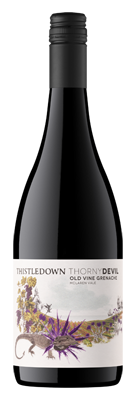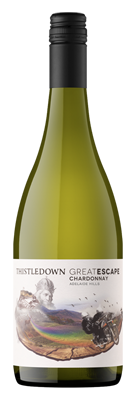Filter by
- 94pt old vine Cabernet from the hugely popular, highly regarded Pikes estate of Clare Valley.$75.00 RRPfrom $71.99 when you mix 12+
- Pretty "long and layered" 93pt old vine Grenache from specialists of the grape!$36.00 RRPfrom $34.50 when you mix 12+
- Super-fresh, 92pt modern-style of Chardonnay from elevated sites.$32.00 RRPfrom $29.50 when you mix 12+
- Succulent, full-bodied Portuguese red made from old vines and crafted by a highly-rated winemaker.$22.00 RRPfrom $14.99 when you mix 12+
- Dark, earthy Shiraz meets youthful, exotic and three fragrant Rhône Valley white wine varieties.$200.00 RRPfrom $189.99 when you mix 12+
- Gold-winning, 94pt, Superb Value "meticulous" (Halliday) Grenache from the brilliant Bleasdale.$30.00 RRPfrom $27.99 when you mix 12+
- Trophy-winning Caberent Franc with a heap of Golds and points from superb Bleasdale.$30.00 RRPfrom $27.99 when you mix 12+
- Generous mouth-filling GSM from a Barossa powerhouse.$24.50 RRPfrom $22.99 when you mix 12+
- Hentley Farm Mataro: a beast from the Barossa.$24.50 RRPfrom $23.99 when you mix 12+
- Food-friendly 95pt McLaren Vale Grenache from a 5-star winery.$42.00 RRPfrom $42.00 when you mix 12+
- A thrilling McLaren Vale Grenache with scores of 95pts and two Golds from Elena Brooks.$80.00 RRPfrom $74.99 when you mix 12+
- Gold-medal, 90pt Langhorne Creek Cab from cricket legend Ricky Ponting & award-winning Ben Riggs.$25.00 RRPfrom $23.99 when you mix 12+
- 92pt, Great Value, juicy Hunter Valley Shiraz harvested early to capture maximum freshness.$28.00 RRP$18.99 when you mix 12+
- 97pt Cabernet Shiraz distinguished Aussie classic blend from Wrattonbully.$50.00 RRPfrom $37.99 when you mix 12+
- Come as you are to Claymore's chart-topping 95pt Clare Valley Shiraz Reserve$50.00 RRPfrom $39.99 when you mix 12+
- Excellent, 92pt pure Clare Valley Cab Franc from the brilliant Pikes.$28.00 RRP$24.99 when you mix 12+
- From one of the southern Rhône’s top cru villages, this is dark and swarthy, voluptuous and velvety.$46.00 RRPfrom $37.99 when you mix 12+
- Superior Côtes du Rhône-Villages red, all velvety black fruit and herbal spice from a family estate.$30.00 RRPfrom $21.99 when you mix 12+
- A limited parcel of gorgeous Shiraz fruit lies behind this rare RedHeads release.$36.00 RRPfrom $29.99 when you mix 12+
- $40.00 RRPfrom $38.99 when you mix 12+
- Gorgeously rich Gold Reserva with intense berry fruit and mellow vanilla oak from the Rioja Alavesa$50.00 RRPfrom $44.99 when you mix 12+
- A delicious, young, fruit-filled Rioja from this standout family estate, ‘royalty’ in the region.$28.00 RRPfrom $18.99 when you mix 12+
- 90-Point, high-altitude Lebanese red from a legendary Bordeaux winemaker. Beautifully silky.$46.00 RRPfrom $39.99 when you mix 12+
- Rich, dark, velvety, Gold, 91pt red from Right Bank Bordeaux specialist Christophe Reboul Salze.$38.00 RRPfrom $29.99 when you mix 12+





























